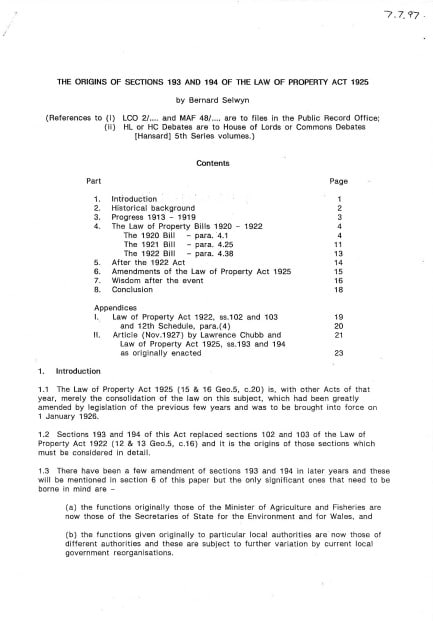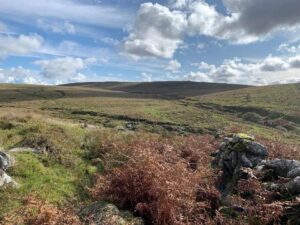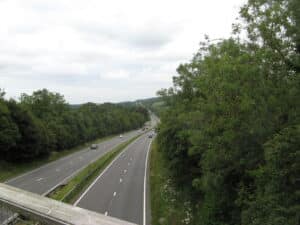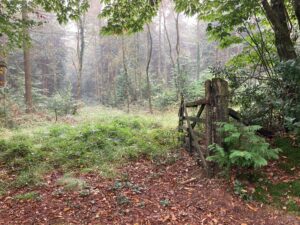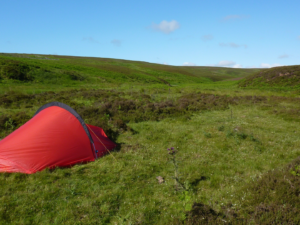The Law of Property Act 1922 modernised the law of real property. The Act abolished copyholds, the form of land tenure whereby tenants’ rights, including rights of common, were recorded by the manorial courts. The society was alarmed by this: when attempts were made to enclose commons, we always referred to the manorial records to ascertain the existence of common rights.
Accordingly, we campaigned for and won provisions which gave the public the right to walk and ride on certain commons, and which protected commons from development and encroachment by requiring the minister’s consent for any works. These became sections 193 and 194 of the Law of Property Act 1925, and are integral to the society’s work to protect common land and ensure the public can enjoy it. Section 193 confers the sole legal right of access to around one-third of commons today, while section 194 has been repealed and re-enacted in similar form in Part 3 of the Commons Act 2006.
In 1997, Open Spaces Society trustee and vice-president Bernard Selwyn wrote a comprehensive paper detailing the origins of sections 193 and 194 of the Law of Property Act 1925, and the society’s role in achieving them.
Sadly, Bernard died in 2018, but his years of devotion and dedication to the Open Spaces Society live on. You can read Bernard’s obituary here, and find his paper on the Origins of Sections 193 and 194 of the Law of Property Act 1925 linked below.
Further resources about Commons
Part 1 of the Commons Act 2006: getting land onto or off the commons and greens registers
This fact sheet covers the following information about Part 1 of the Commons Act 2006: getting land onto or off the commons and greens registers.
Protecting commons, greens and open spaces training course
Learn the fundamentals on this comprehensive course to include definitions, registration/designation, protection and management.
How to take action against unlawful encroachments and works
This fact sheet tells you how to protect your common from unlawful encroachments and works in England.
Vehicular access across Common Land and Town or Village Greens
This provides guidance about vehicular access across common land and town or village greens following the repeal of section 68 of the Countryside and Rights of Way Act 2000.
A charter for Wales's open spaces
Read our August 2020 charter for the promotion and protection of open spaces so that everyone in Wales can benefit.
A Common Purpose Guide
Download the Foundation for Common Land guidance on how to engage with local communities for those contemplating management on common land.
An approach to the re-registration of commons
Our commons re-registration officer Dr Frances Kerner shares our approach to research and application preparation
Registered common land and highways
Registered common land may also be part of a public highway, and evidence that land is registered common land or part of a highway is of little or no value in demonstrating that the land is not the other.
A charter for England's open spaces
Read our August 2020 charter for the promotion and protection of open spaces so that everyone in England can benefit.
A commons’ conference companion
The Countryside and Community Research Institute of Gloucester University (CCRI) has published a Commons e-book
DIY guide to registering lost commons
The Commons Act 2006 provides a new, time-limited, opportunity for you to rescue some of those commons which failed to be registered under the Commons
Buildings, fences and other works on common land in England and Wales
A practical guide for those wishing to carry out a lawful operation on a common and those wanting to defend a common against unlawful or undesirable operations.
Frequently Asked Questions: Commons
Frequently asked questions about commons
Preventing vehicular access to common land or town and village greens (dragon's teeth)
How to prevent vehicular access to common land, town or village greens using dragon's teeth.
Unclaimed land and adverse possession
Unclaimed land and adverse possession: protecting commons and other open spaces with no known owner
Finding common ground
Integrating local and national interests on commons: guidance for assessing the community value of common land

